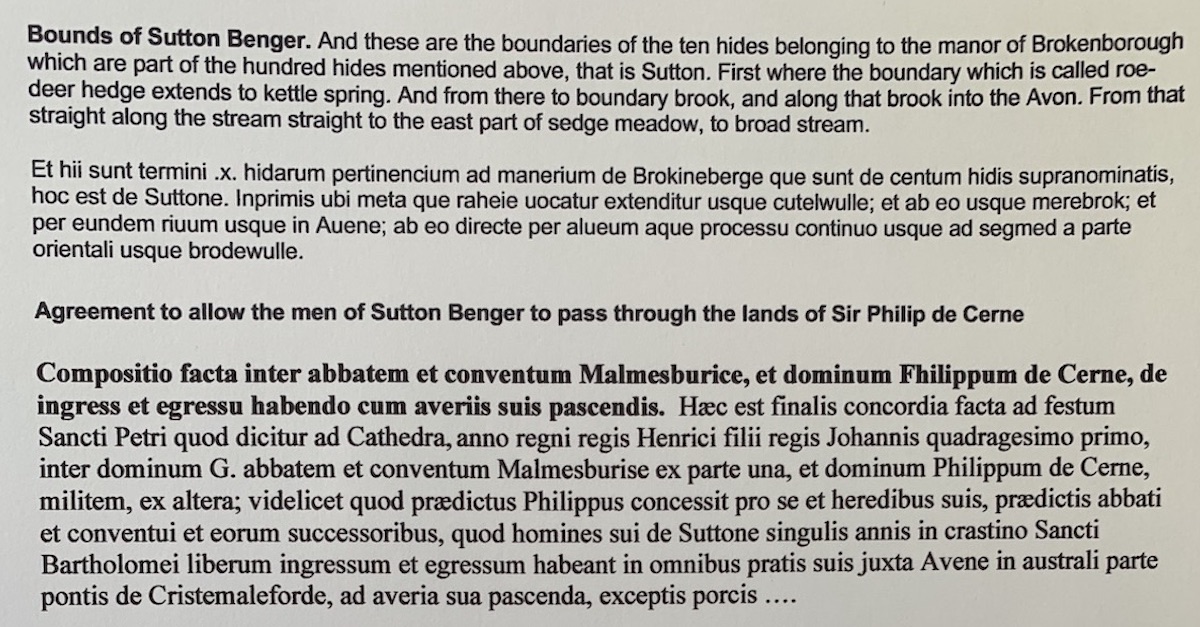Sutton Benger - What does it mean?
Sutton Benger – What does it mean?
Sutton Benger is one of three parishes in Wiltshire called ‘Sutton’ – the others are Sutton Mandeville and Sutton Veny. In fact, just about every county in England has at least one parish called Sutton; this is because it comes from the Anglo-Saxon words ‘sudh’ and ‘tun’ for ‘south farm’. 'Tun' was used for any settlement such as a farm or village, and was pronounced 'toon'; the word changed over time to become our 'town'. (The North-east or Geordie accent has much in common with Anglo-Saxon pronunciation, which leads to the Newcastle United football club supporters being called the 'toon army'.
During the years after the Norman Conquest the parish was known simply as ‘Suttune’ or ‘Sutton’. For example, a document dating from about 1300 describes the boundaries of the parish, then part of Brokenborough, as follows (originally in Latin):
And these are the boundaries of the ten hides belonging to the manor of Brokenborough which are part of the hundred hides mentioned above, that is Sutton.
At some time around 1400 the parish started to be called Sutton Benger, but this seems to have been a mistake, caused by confusion with Sutton Mandeville (whose tenant had been called Berengar). To add to the confusion, some documents in around 1500 also referred to the parish as Sutton Leonard, when there was confusion with Sutton Veny (whose church was St Leonard’s). However, by 1600 ‘Sutton Benger’ had become the name used in official documents, as shown in Last Wills and Testaments and other documents from the 17th and 18th centuries.
However, it became quite common in the 1800s and 1900s to refer to the parish as simply ‘Sutton’, for example in the Church Registers of births, deaths and marriages – taking us right back to the original name of 1000 years ago.

Anecdotes and Folklore
Discover more articles in the history index.
History Index